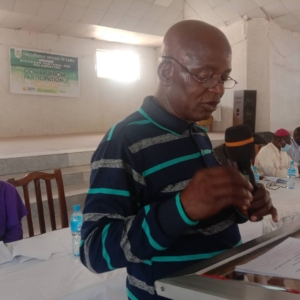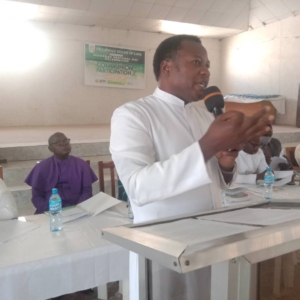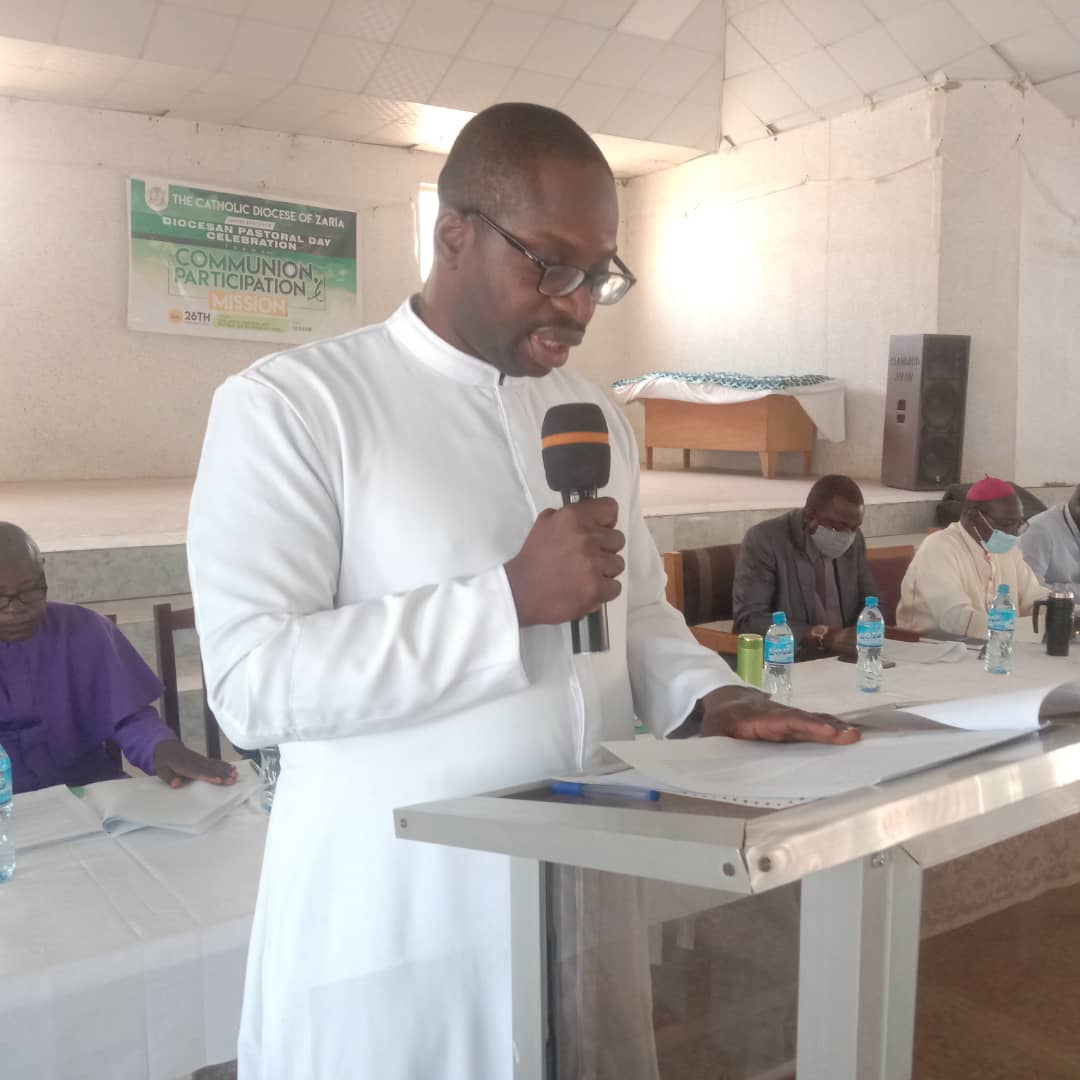The Catholic Diocese of Zaria held her diocesan synod at Our Lady of Perpetual Help Pastoral Centre, Zaria on Saturday, 26th February, 2022 to discuss the theme ‘Communion, Participation and Mission. Charting the paths for effective involvement in the spread of the Gospel of Jesus as Catholics, the Chief Shepherd of the diocese, Most Rev. George Jonathan Dodo called on his flock to make conceited effort to know the teachings and ways of the Church so that they do not live by unhealthy competition.
His Lordship observed that some Catholics derail from the Church’s track due to poverty of knowledge which is sometimes borne out of laziness and proffered getting acquainted with the Church’s patterns as a way of remaining informed and staunch members of the universal fold.
“There are some Catholics who simply believe that church is church.” Bishop Dodo asserted. “When we are having discussions, let us look at the roots of the Church. Let us not forget the cultures and traditions of the Church. Let us not forget the basic foundations where the teachings of the Church are coming from. What is our culture? What is our identity? How do we maintain our culture and identity? If you do not know your Catholic teachings, there is no way you can teach them to your children.”
Three papers were presented at the event. Firstly, the Director, Seat of Wisdom Academy, Zaria, Rev Fr. Dr. Julian Ibe dwelt on ‘Communion’ aspect of the theme; explaining that the ongoing synod on synodality is the fifth synod that Pope Francis has convened in the course of his papacy and that it is the only one that is open to every member of the faithful.
“Synodality means the path along which the People of God walk together,” Fr. Ibe said. “The idea of synodality creates an image of people walking along a path together and evokes an image of friends who share stories, words of wisdom and care for one another as they journey along together. Synodality involves listening, dialoguing, praying and discerning.
“In other Church synods, the voting members are the bishops, but with synodality, the bishops also listen to and dialogue with others experiencing particular realities or those facing peculiar challenges. The Holy Father encourages all participants to speak with boldness, openness and frankness, in order to integrate freedom, truth and charity. However, it must be honest, not just chatter, rumors, conjectures or prejudices. Those listening must do so with humility, and must be open to newness and the possibility of changing their opinions.”
The director projected the Church as a communion which abhors racial, ethnic or regional discriminations, citing the recent cases of priests who were reprimanded by their bishops for statements that are capable of cracking the Church’s communal fences.
Secondly, Sir. Emmanuel Gandu presented the paper on ‘Participation;’ observing that some Catholics view the Church as the property of the clergy, just as some priest classify it as that of the bishop, an impression he said affects active participation of the biased persons. He outlined scandals, absence of remuneration for some key players in the Church, abuse of office and donors’ intentions, syncretism, inadequate catechesis and others as some limiting factors to participation in the affairs of the Church.

Summing the presentations, the Dean of Wusasa Deanery, Very Rev Fr. Ezekiel Danlami Tijjani dwelt on ‘Mission’ in asserting that there is no other but the Ministry of Christ. He maintained that the idea of a personal ministry is theologically wrong.

“The Church is sent by the three divine Persons on mission. That is why the Church is by nature, missionary. Every member of the Church participates in the mission of the Church by the very fact of baptism. This mission can be either in words, actions or even thoughts,” the dean explained.
He further emphasized the need to acknowledge the institution’s hierarchy despite the similarities in commission.
The event also featured a workshop in which the participants were shared into six groups to brainstorm and give their opinions about the following six issues: women ordination; same sex marriage; the extent of togetherness, love and care in the Church; ways to improve participation and mission in the diocese; identification of the abandoned and those needing attention in the cooperate journey; and impression on priests’ participation in politics.
By Olivia Obijiaku
